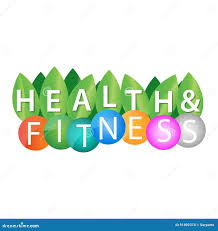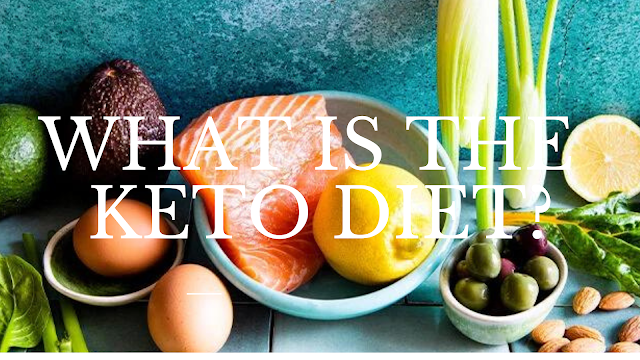The keto diet has become increasingly popular in recent years, as more people are looking for ways to achieve optimal health and wellness. But what is the keto diet and how does it work? In this blog post, we’ll unlock the secrets of the keto diet and provide you with a comprehensive guide to understanding the basics, benefits, and tips for success. So let’s get started!
What is the Keto Diet?
The ketogenic diet, or “keto” for short, is a high-fat, low-carb diet. It is based on the principle of ketosis, which is a natural process in which the body burns fat for energy instead of carbohydrates. This type of diet has been used to treat various medical conditions such as epilepsy and diabetes, but it has recently gained popularity as a way to lose weight and improve overall health.
The keto diet is not a one-size-fits-all approach. There are several different versions of the diet, and it’s important to find the right one for you. Generally speaking, the keto diet involves eating fewer carbs, increasing your fat intake, and consuming moderate amounts of protein. This helps the body enter into a state of ketosis, which allows it to burn fat for fuel instead of glucose from carbohydrates.
Benefits of the Keto Diet
The keto diet has a number of potential benefits, including weight loss, improved mental clarity, and increased energy. It can also help reduce inflammation, improve cholesterol levels, and reduce the risk of certain diseases.
One of the most significant benefits of the keto diet is its ability to promote weight loss. The diet helps to reduce appetite and increase fat-burning, which can lead to significant weight loss over time. Additionally, the keto diet can help to regulate the hormones that control hunger, making it easier to maintain healthy eating habits.
The keto diet can also provide mental clarity, as it helps to reduce inflammation in the brain. This can lead to improved focus and concentration, as well as better memory. Additionally, some people report increased energy levels while on the keto diet, which can help to boost productivity and motivation.
Keto Diet Basics
When starting the keto diet, it’s important to understand the basics. First, it’s important to know that the body needs a certain amount of carbs to function properly. If you reduce your carb intake too much, you may experience symptoms of the “keto flu,” which can include fatigue, headaches, and difficulty concentrating.
It’s also important to understand what types of food you should be eating on the keto diet. Generally speaking, the diet should consist of high-fat foods such as nuts, seeds, and avocados, as well as moderate amounts of protein from lean meats and fish. It’s also important to focus on eating low-carb vegetables such as broccoli, spinach, and kale.
Finally, it’s important to know that the keto diet is not a “quick fix” and requires dedication and commitment. It’s important to stay on track and follow the plan in order to see results. Additionally, it’s important to listen to your body and make adjustments as needed.
Keto Diet Foods
When it comes to the keto diet, it’s important to focus on eating the right types of food. Generally speaking, the diet should include high-fat foods such as avocados, nuts, and seeds, as well as moderate amounts of protein from lean meats and fish. It’s also important to focus on eating low-carb vegetables such as broccoli, spinach, and kale. Additionally, it’s important to limit your intake of processed and sugary foods, as these can interfere with your body’s ability to enter into ketosis.
When planning your meals, it’s important to focus on nutrient-dense foods that are high in healthy fats, moderate in protein, and low in carbs. Some examples of keto-friendly foods include eggs, fatty fish such as salmon and mackerel, nuts and seeds, avocados, olive oil, coconut oil, grass-fed butter, and full-fat dairy products. It’s also important to focus on eating a variety of vegetables, as these can provide essential vitamins and minerals.
Keto Diet Meal Plans and Recipes
One of the best ways to stay on track with the keto diet is to plan your meals in advance. Meal planning helps to ensure that you are eating the right types of food and getting the right balance of nutrients. Additionally, it can help to reduce stress, as you don’t have to worry about what to make for dinner every night.
When planning your meals, it’s important to focus on nutrient-dense, keto-friendly recipes. Some examples of keto-friendly recipes include breakfast burritos, bacon-wrapped asparagus, and salmon with avocado salsa. Additionally, it’s important to make sure that you are getting enough variety in your diet, as this can help to ensure that you are getting all the essential nutrients your body needs.
Keto Diet Supplements
In some cases, it may be beneficial to take supplements while on the keto diet. Supplements can help to fill in the gaps in your diet and provide essential nutrients such as vitamins and minerals. Additionally, some supplements may help to boost energy levels, improve mental clarity, and support overall health.
When considering supplements, it’s important to talk to your doctor or healthcare provider to ensure that they are right for you. Some supplements that may be beneficial on the keto diet include omega-3 fatty acids, MCT oil, electrolytes, and exogenous ketones. Additionally, it’s important to make sure that you are getting all the essential nutrients your body needs through food first.
Keto Diet Tips for Beginners
Starting the keto diet can be overwhelming, so it’s important to have a plan in place to ensure success. Here are some tips for beginners to help get you started:
-Start slowly: Don’t try to do too much too quickly. Start by making small changes to your diet and gradually increase your fat and protein intake.
-Get organized: Meal planning can help to keep you on track and make sure you are eating the right types of food.
-Eat plenty of vegetables: Low-carb vegetables can provide essential vitamins and minerals and help to fill you up.
-Stay hydrated: Drink plenty of water to stay hydrated and help your body enter into ketosis.
-Be patient: Don’t expect overnight results. It takes time for the body to adjust to the keto diet, so be patient and stick with it.
Keto Diet Exercise and Fitness
Exercise is an important part of any healthy lifestyle, and it can be particularly beneficial on the keto diet. Exercise can help to boost energy levels, improve mental clarity, and promote weight loss. Additionally, it can help to reduce inflammation, improve heart health, and support overall health and wellbeing.
When exercising on the keto diet, it’s important to focus on low-intensity activities such as walking, yoga, and light weight training. It’s also important to make sure you are getting enough rest and recovery, as this can help to reduce fatigue and improve performance. Additionally, it’s important to listen to your body and make adjustments as needed.
Keto Diet Challenges and Solutions
The keto diet can be challenging at times, but there are ways to overcome these challenges. One of the most common challenges is getting enough variety in your diet. To help ensure that you are getting all the essential nutrients your body needs, it’s important to focus on eating a variety of keto-friendly foods such as nuts, seeds, and low-carb vegetables. Additionally, it can be helpful to take supplements to fill in any gaps in your diet.
Another common challenge is dealing with cravings. To help manage cravings, it’s important to focus on eating nutritious, keto-friendly foods and make sure you are getting enough sleep. Additionally, it can be helpful to find healthy snacks such as nuts and seeds that can help to satisfy cravings without derailing your progress.
Conclusion
The keto diet can be a great way to achieve optimal health and wellness. It can help to promote weight loss, improve mental clarity, and increase energy levels. Additionally, it can help to reduce inflammation, improve cholesterol levels, and reduce the risk of certain diseases.
When starting the keto diet, it’s important to understand the basics, including what types of food to eat and what supplements may be beneficial. It’s also important to plan your meals in advance and make sure you are getting enough variety in your diet. Additionally, it’s important to focus on low-intensity exercise and make sure you are getting enough rest and recovery.
If you’re looking for a way to improve your health and wellbeing, the keto diet may be a great option. With the right plan and support, you can unlock the secrets of the keto diet and achieve optimal health and wellness.

